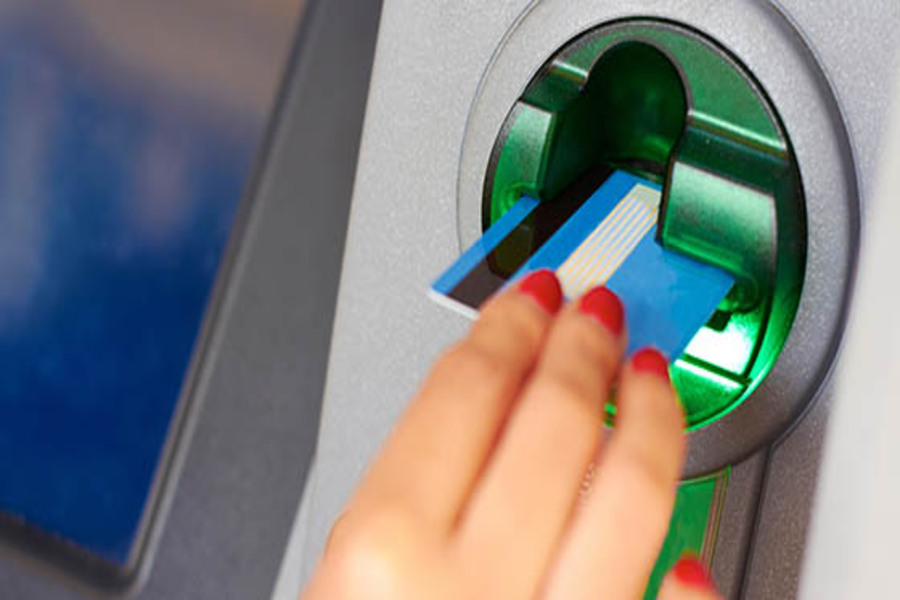Preventing financial losses from occupational fraud requires your company to remain vigilant. In a nutshell: Trust employees, but routinely verify they aren’t stealing. This includes salespeople who, if they’re unethical, could falsify sales commission records to illicitly line their own pockets. Because it’s sometimes impossible to spot crooks in your midst, be aware of potential sales commission fraud schemes and how best to detect and prevent them. How some may cheat Sales commission fraud can take several forms. For example, a retail employee bent on fraud may enter a nonexistent sale into a point of sale (POS) system to generate a commission. Or a dishonest sales associate might create a fraudulent contract that invents everything — including the customer. Another risk is overstatement of sales. In such cases,...

Deepfakes — digital forgeries produced by artificial intelligence (AI) — have blurred the line between reality and illusion. On the upside, AI-generated deepfakes have revolutionized special effects in motion pictures and made certain education and health care industry processes more effective. Yet there are also plenty of risks associated with deepfakes. Current threats Deepfakes purporting to represent public officials can disseminate disinformation and generate fake news stories. And if fraud perpetrators use deepfake images of a company’s owner or senior executives, they can more easily perpetrate phishing schemes and steal sensitive data. The threat extends beyond visible manipulation to audio. Deepfakes can mimic a specific individual’s voice to commit theft. For example, a so-called “business partner” might leave a voicemail instructing someone in your accounting department to wire...
Whether you’re an entrepreneur seeking start-up funds or the owner of an established business that needs capital to make an acquisition or develop new product lines, be careful when looking for a lender. To avoid fraudsters and potentially dire consequences, you need to take your time and carefully screen anyone eager to lend you money. After all, there must be something in it for them. Ensure that those motivations are honest. Signs signifying trouble Predatory lenders often offer loans with punitive terms and conditions and nonrefundable upfront fees. They especially target businesses with a checkered history or inadequate collateral because they know such borrowers have fewer options and may be more willing to compromise. To tempt borrowers, bad actors might advertise a quick closing or a willingness...
According to the Association of Certified Fraud Examiners, when one occupational fraud perpetrator pulls off a scam, the employer suffers a median loss of $75,000. When crooked individuals team up, that median loss rises to $135,000. And when three or more crooks work together to defraud an organization? $329,000. That’s the power of collusion. If such financial consequences weren’t bad enough, collusion can also destroy a company’s reputation. After all, from the perspective of investors, lenders, customers and the general public, the defrauded business may seem corrupt and chaotic — certainly not trustworthy. So you must do everything possible to discourage collusion and other forms of fraud in your business. Preventing control workarounds Internal controls, or policies and procedures that can help minimize criminal behavior, are essential to...
Business e-mail compromise (BEC) has emerged as one of the most financially damaging online crimes. According to the FBI’s Internet Crime Complaint Center (IC3), organizations lost nearly $56 billion across approximately 305,000 incidents between October 2013 and December 2023. Increasingly, gift cards are playing a key role in BEC scams. Understanding how these schemes work can help prevent them from harming your business. Role of gift cards To steal from companies, BEC perpetrators use social engineering and computer intrusion techniques. Their goal is to trick email users into transferring funds to them. Although several BEC variations are active, cybercriminals usually impersonate senior executives and target lower-level employees by asking workers to fulfill what might seem like routine requests. These include sending money via wire or writing a check. In...
If your business is particularly busy, you may temporarily outsource some of its work to third-party contractors. Hiring contractors can be a cost-effective way to manage seasonal — or even ordinary — customer demands without hiring new employees or making other long-term investments. However, third parties can introduce some financial, legal and reputational risks. So it’s important to recognize potential threats and take steps to head them off before engaging contractors. 2 scenarios Consider the following example: A company employs an overseas trucking company to transport goods from a port to a customer’s warehouse. The driver, unfortunately, isn’t very honest and he pays a kickback to customs personnel to release the shipments quickly. This action subjects the company that hired the contractor to bribery and corruption charges...
Job applicants must work hard to stand out in a crowded marketplace. For some, that means bending the truth — or outright lying — about their experience, skills and education. According to a survey performed by resumé-writing service StandOut CV, a staggering 64.2% of Americans have lied on their resumé at least once. Bad hires can generate direct and indirect costs, including lost productivity, customer dissatisfaction and wasted training time. In extreme circumstances, news of a bad hire can result in reputational damage. To make matters worse, if a dishonest new hire objects to being fired (or a candidate doesn’t get the job), the person could sue, leading to expensive legal bills. You can help protect against such losses by spotting dishonest resumés early in the...
Recently, a 401(k) plan participant was defrauded of approximately $740,000 when he fell victim to an elaborate scheme perpetrated by overseas criminals. However, even friends, family members and employers have been discovered stealing from 401(k) accounts, adding up to millions of dollars in losses every year. Here’s what your organization can do to help keep your employees’ retirement savings safe from theft. Assessing existing protections If your organization sponsors a 401(k) plan, assessing plan service providers’ protection systems and policies is essential. Most providers carry cyber fraud insurance that they extend to plan participants. But there may be limits to this protection if, for example, the provider determines that you (the sponsor) or employees (participants) opened the door to a security breach. Your plan’s documents may say that...
Skimming, where criminals use hidden digital readers to steal debit and credit card information, is a pervasive threat that can result in significant financial losses for businesses. The FBI estimates that ATM and point-of-sale (POS) skimming generates more than $1 billion for criminals annually. So if your business offers or operates these machines, you need to assess your risk and take steps to prevent skimming from happening on your premises. How it happens Skimming is widespread among thieves because it’s a relatively straightforward crime to perpetrate. Fraudsters secretly place a skimming device — usually a plastic overlay — on an ATM or POS reader to capture card data and users’ PINs. Alternatively, they might use hidden cameras focused on the keypad or even a “dummy” keypad. They then...
You may trust your executive management team implicitly. But the research is clear: In organizations where executives turn to fraud, the results are very costly. According to the Association of Certified Fraud Examiners’ (ACFE’s) Occupational Fraud 2024: A Report to the Nations, owner/executive fraud makes up only 19% of all cases but has a median loss of $459,000 per incident. That compares with $60,000 per incident for non-managerial employees. Part of the reason behind such great financial losses is the fact that it generally takes longer to detect fraud perpetrated by executives (24 months vs. eight months for rank-and-file worker schemes). So the more proactive you are about preventing and detecting occupational fraud at the highest levels, the better. 3 factors You might start by considering how the...











